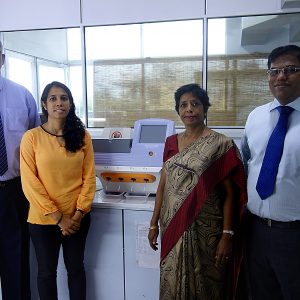Fungal diseases or mycoses impose an increasing risk to public health due to various factors. This increase may be a result of frequent usage of antibiotics, immunosuppressive drugs and various conditions like organ transplantations, lymphomas, leukemia or human immunodeficiency virus (HIV) infections. [1] and it is associated with excessive morbidity and mortality [2]. Increasing frequency of mycoses is is directly related to the increasing numbers of patients who are at risk for the development of serious fungal infections, including patients undergoing blood and marrow transplantation, solid-organ transplantation, and major surgery (especially gastrointestinal surgery); patients with AIDS, neoplastic disease, and advanced age; patients receiving immuno-suppressive therapy; and premature infants. Given the complexity of the population of patients who are at risk for infection and the diverse array of fungal pathogens mycoses cause a considerable therapeutic challenge.[2]
Mycoses can be of four different types: superficial, cutaneous, subcutaneous or systemic. Some of these infections are caused by opportunistic pathogenic strains while other infections are community or hospital acquired. [3] The most well known causes of opportunistic mycoses include Candida albicans, Cryptococcus neoformans,and Aspergillus fumigates [2] while several other pathogens such as Dermatophytes, Histoplasma capsulatum, Exserohilum spp., Cladosporium, Sporothrix, Pityriasis versicolor, Piedraia spp. also act as pathogens causing mycoses. [4] Infections caused by these organisms range from catheter-related fungemia and peritonitis, to more localized infections (infections of lungs, skin, and paranasal sinuses), to widespread hematogenous dissemination [2].
Identification of cultured microorganisms from clinical specimens is one of the key steps for proper patient management, such as initiating adequate antimicrobial therapy.[6] Fungal identification using traditional methods is sometimes problematic because of atypical microscopic or macroscopic morphology. [5] Slow growing strains and fastidious growth requirements can impede the identification process. Drawbacks in traditional methods lead to erroneous interpretation of results while the identification process is often cumbersome and time consuming. Fungal culturing requires minimum time duration of 7-10 days. Reference literature in case of traditional methods can be inconsistent and nuanced, at best, in providing identification of a queried microorganism at any given time. [6]
Sequence based techniques have the potential to overcome the problems of the traditional methods and thus can complement the established phenotypic identification procedures. [6]ITS region based identification of fungi has provided more rapid, sensitive and accurate alternatives, while accelerating the process. ITS sequencing has a very short turnaround time of 48 hours. Widening the possibilities of fungal identification, sequence based ITS testing for fungi can identify the whole spectrum of known pathogenic fungal strains in a single run. Being a culture independent technique, it vastly reduces the error rates that can occur due to phenotypic based identification methods. ITS analysis can distinguish between the intragenic variations among closely related species, while providing measurements on relative abundances of fungal species. Sequence based ITS region analysis therefore makes discoveries possible, and eases patient management fastening pathogen identification.
References-
- Kannan, P., C. Janaki, and G. S. Selvi. “Prevalence of dermatophytes and other fungal agents isolated from clinical samples.” Indian Journal of Medical Microbiology3 (2006): 212.
- Pfaller, Michael A., Peter G. Pappas, and John R. Wingard. “Invasive fungal pathogens: current epidemiological trends.” Clinical Infectious DiseasesSupplement 1 (2006): S3-S14.
- org. 2013. Fungal Diseases. [online] Available at: http://www.fungalinfectiontrust.org/fungaldis.html [Accessed: 25 Nov 2013].
- gov. 2013. CDC – Fungal Diseases – Sporotrichosis. [online] Available at: http://www.cdc.gov/fungal/sporotrichosis/ [Accessed: 25 Nov 2013].
- Li, Hsin Chieh, et al. “Identification of dermatophytes by sequence analysis of the rRNA gene internal transcribed spacer regions.” Journal of medical microbiology5 (2008): 592-600.
- ascpjournals.org. 2013. LabMedicine. [online] Available at: http://labmed.ascpjournals.org [Accessed: 25 Nov 2013].


